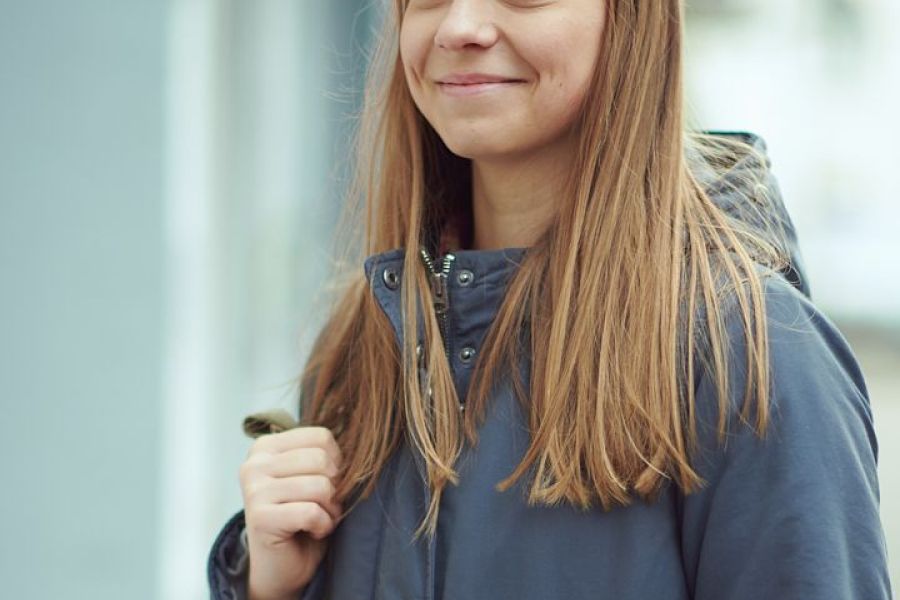Kornelija wants to know everything about the effects of light on animals and humans


In February, Kornelija Vitkute started her PhD project at the University of Groningen. Under supervision of dr. Peter Meerlo, dr. Robbert Havekes and dr. Roelof Hut, she investigates the effects of static artificial light on behavior, physiology and brain mechanisms. With this knowledge, from both nocturnal and diurnal species, lights can be designed that are not harmful for circadian rhythms of people and animals.
Who are you?
Hey, I am Kornelija! I come from Lithuania, a land full of forests, lakes, and rivers. As a child, I had spent all of my summers in the woods, so any activity related to nature is what I love the most, whether it would be hiking, foraging, or swimming. Apart from that, I love painting and playing the piano, and frequently I become hooked on more unusual hobbies, such as bookbinding or stained glass.
What is your background?
I acquired a BSc degree in Biophysics at Vilnius University, where I researched the properties of biological membranes using Atomic Force Microscopy. I also completed an internship at NASA Ames Research Center during my bachelor studies, where I constructed and characterized microelectrode arrays for brain neurotransmitter monitoring. I became fascinated with the complexity of the subject. Therefore, I studied Neuroscience for my master’s degree and used patch-clamp electrophysiology to study the early postnatal development of hippocampal pyramidal neurons. My deep interest in Neuroscience led me to join the BioClock project, and I am excited to be a part of it!
What is your project about?
This February, I started my Ph.D. at the Groningen Institute for Evolutionary Life Sciences. I will be unraveling the effects of artificial light on animal behavior, physiology, and brain activity. In contrast to dynamic natural illumination that humans have evolved with, artificial lights are static and do not share the same intensity, spectral or temporal properties. These inconsistencies may affect our circadian rhythms and sleep, which can further influence our health and well-being.
To elucidate the diverse consequences of artificial light, we will expose diurnal and nocturnal mammals to varying levels of artificial light, either during the dark or the light phase of the circadian cycle. We will record the behavioral and physiological changes in circadian activity and sleep architecture with miniature electroencephalogram (EEG), electromyogram (EMG), and brain temperature dataloggers. After analyzing the effects, we will then study the molecular mechanisms responsible for the observed changes. This research will give important insights into the outcomes of artificial light exposure and the complex neuronal processes involved.
When did you first hear about the biological clock?
To this day, I am amazed at the perfect timing for my dog to start drooling and showing sweet puppy eyes when it is time to be fed. Or how the birds outside start chirping and waking everyone up even before dawn. Or how it seems that in the early afternoon, it takes a great deal of effort to restrain yourself from taking a nap. It works daily like wicked magic! Only during my studies did I learn about the science of chronobiology, and everything seemed to fall into place. It just makes sense, doesn’t it?
What is something that people should know about you?
In high school, I got accepted to an international exchange program to live and study in the United States for a year. I had to earn money for the plane tickets myself, so for the whole summer, I baked Lithuanian pies ‘šimtalapis’ and sold them on random food markets throughout my city. Apart from this entertaining experience and ruining my parents’ oven from overuse, the year abroad was loads of fun!
Questions for Kornelija: k.v.vitkute@rug.nl

The BioClock Consortium is funded by the NWA-ORC programme of the Dutch Research Council (NWO; project number 1292.19.077).